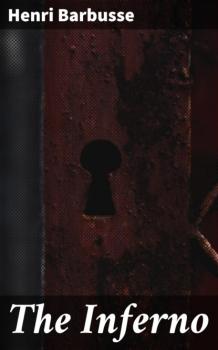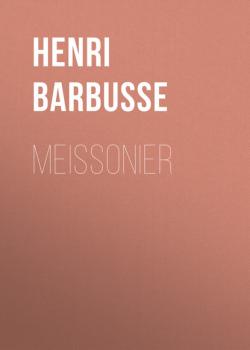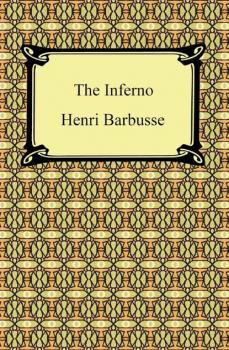Henri Barbusse
Список книг автора Henri BarbusseCehennem
Cehennem, bireyin kendi aklı dışındaki bilginin elde edilemez olduğu fikrini savunan solipsizm felsefesinin muhteşem bir şekilde incelemesidir. Solipsizm, dış dünyanın ve diğer insanların uslarının varlığından asla emin olunamayacağı tahmininde bulunur. Hikaye, odasında bir delik açarak dış dünyayı inceleyebileceği bir manzaraya sahip olan isimsiz bir adamın peşinden şekillenmektedir. Sevgiyi, ölümü, yasak ilişkileri ve doğumları gözetler. İnsan deneyimlerinin ve duygularının yabancılığına sinsice şahit olurken tüm gördüklerinin felsefi imalarını gözden geçirir. Bazıları tarafından röntgenciliğin sarsıcı bir çalışması olarak görülen Cehennem, aslında solipsizm felsefesinin derin bir incelemesidir. Bence, Henri Barbusse bir yüksek, bir gerçek sanatçının nasıl çalışması, nasıl yaşaması, nasıl ve niçin dövüşmesi lâzım geldiğini, bütün bir insan soyuna en muazzam ölçülerle gösteren bir âbidedir. Sabahattin Ali
Le feu (Journal d'une Escouade)
"Le feu (Journal d'une Escouade)", de Henri Barbusse. Publié par Good Press. Good Press publie un large éventail d'ouvrages, où sont inclus tous les genres littéraires. Les choix éditoriaux des éditions Good Press ne se limitent pas aux grands classiques, à la fiction et à la non-fiction littéraire. Ils englobent également les trésors, oubliés ou à découvrir, de la littérature mondiale. Nous publions les livres qu'il faut avoir lu. Chaque ouvrage publié par Good Press a été édité et mis en forme avec soin, afin d'optimiser le confort de lecture, sur liseuse ou tablette. Notre mission est d'élaborer des e-books faciles à utiliser, accessibles au plus grand nombre, dans un format numérique de qualité supérieure.
The Inferno
"The Inferno" by Henri Barbusse (translated by Edward J. O'Brien). Published by Good Press. Good Press publishes a wide range of titles that encompasses every genre. From well-known classics & literary fiction and non-fiction to forgotten−or yet undiscovered gems−of world literature, we issue the books that need to be read. Each Good Press edition has been meticulously edited and formatted to boost readability for all e-readers and devices. Our goal is to produce eBooks that are user-friendly and accessible to everyone in a high-quality digital format.
Under Fire (Historical Novel)
Under Fire: The Story of a Squad is novel was based on Henri Barbusse's experiences as a French soldier on the Western Front. The novel takes the form of journal-like anecdotes which the unnamed narrator claims to be writing to record his time in the war. It follows a squad of French volunteer soldiers on the Western front in France after the German invasion. The book relates broad visions shared by multiple characters but beyond these the action of the novel takes place in occupied France. Under Fire describes war in gritty and brutal realism. It is noted for its realistic descriptions of death in war and the squalid trench conditions.
Light
"Light" by Henri Barbusse (translated by W. Fitzwater Wray). Published by Good Press. Good Press publishes a wide range of titles that encompasses every genre. From well-known classics & literary fiction and non-fiction to forgotten−or yet undiscovered gems−of world literature, we issue the books that need to be read. Each Good Press edition has been meticulously edited and formatted to boost readability for all e-readers and devices. Our goal is to produce eBooks that are user-friendly and accessible to everyone in a high-quality digital format.
Hell
"No one who has ever read this remarkable novel and looked at human life through Barbusse's peephole can ever forget the experience."—Robert Baldick"It is Barbusse, not Gide, not Proust and not Malroux whose work marks the great turning point in French twentieth-century literature."—Jean Favrille Hell is the most highly focused study of voyeurism ever written. A young man staying in a Paris boarding house finds a hole in the wall above his bed. Through this he obsessively studies the private moments and secret activities of his neighbors. Marriage, adultery, lesbianism, religion and death are all seen through this small spy hole.Decades ahead of its time Hell shocked and scandalized the reviewing public when first released in English. Even so, The New Republic praised «the beauty of the book's nervous yet fluid rhythms. . . . Every simile is faultlessly keyed. The book sweeps away life's illusions.»
The Inferno (Hell)
"The Inferno", Henri Barbusse's 1908 novel, is a brilliant examination of the philosophy of solipsism, which is the idea that knowledge outside of one's own mind is essentially unobtainable. Solipsism conjectures that the external world and the minds of other people can never be known to truly exist. The narrative follows an unnamed man who by cutting a hole in his room gains a view to the outside world. He voyeuristically bears witness to the full breadth of human experience and emotion. He witnesses love, death, adultery, and birth and considers the philosophical implications of all that he sees. Considered by some as a shocking work of voyeurism when it first appeared, «The Inferno» is in fact a profound examination of the philosophy of solipsism.
Under Fire
One of the most powerful accounts of trench warfare from the WWI era, “Under Fire” recounts the experiences of the men of the French Sixth Battalion on the front lines after the German invasion. While a fictional narrative, “Under Fire” is based upon diaries Barbusse had written on the front from 1914-1915, and completed in the hospital while recovering from injuries. Barbusse published his work in both serial and book form in late 1916. By the end of the war it was a world-wide bestseller, having sold over a quarter of a million copies. The narrative received mixed reviews at first because of Barbusse’s gritty and brutal realism, which some war critics saw as validation for their protests, while others felt it fictionalized and exaggerated the war. Since then, “Under Fire” has been ranked with such classics as “A Farewell to Arms” and “All Quiet on the Western Front” as one of the most powerful, realistic portrayals of the horrors of war. This edition includes a biographical afterword.
Under Fire
One of the most powerful accounts of trench warfare from the WWI era, «Under Fire» recounts the experiences of the men of the French Sixth Battalion on the front lines after the German invasion. Compiled from diaries he had written on the front from 1914-1915, and completed in the hospital while recovering from injuries, Barbusse published his work in both serial and novel forms in late 1916. By the end of the war it was a world-wide bestseller, having sold over a quarter of a million copies. The narrative received mixed reviews at first because of Barbusse's gritty and brutal realism, which some war critics saw as validation for their protests, while others felt it fictionalized and exaggerated the war. Since then, «Under Fire» has been ranked with such classics as «A Farewell to Arms» and «All Quiet on the Western Front» as one of the most powerful, realistic portrayals of the horrors of war.









